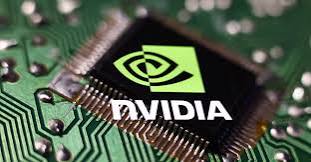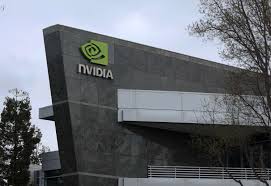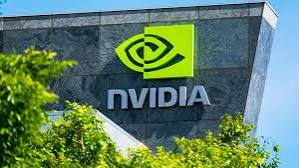“Tech Titans Tumble: Nvidia, TSMC, ASML Face DeepSeek Disruption”

KEY TAKEAWAYS
- Some artificial intelligence stocks, including chip maker Nvidia, fell in premarket trading on Monday after Chinese startup DeepSeek unveiled a cutting-edge AI model that runs on less advanced chips and opened up at a lower cost than American competitors.
- The falling objects include the meta platform and the paranormal energy producing view.
- The site’s experts gave advice on purchasing Nvidia.

Several artificial intelligence stocks, including chip maker Nvidia (NVDA), are falling in premarket trading Monday after Chinese startup DeepSeek released a cutting-edge AI model that runs on less advanced chips and costs less than U.S. rivals such as OpenAI.
The Chinese company’s launch has raised questions about tech stocks being overvalued and Big Tech overspending on its AI build out. DeepSeek’s app was the most downloaded program on the Apple Store in the US on Monday morning.

Earlier this month, DeepSeek said its performance was “equivalent to ChatGPT”. DeepSeek’s development comes amid US export control over modern chips, which has handicapped Chinese companies.
Nvidia fell 11% on Monday morning, while U.S.-listed shares of Taiwan Semiconductor Manufacturing Co. (TSM) dropped more than 11% and Dutch maker of semiconductor-making machinery ASML Holding (ASML) dropped nearly 7%. Other chipmakers also took a hit: Shares of Broadcom (AVGO) have fallen nearly 12%, while Micron Technology (MU) has lost about 6%.

Nasdaq futures are down about 4%. Meta Platforms (META), which reports results on Wednesday, is down about 4%. Even nuclear energy providers that were seen as essential to powering AI data centers are falling.
Citi Sticks With Nvidia Buy Call

Still, in a note released on January 26, site analysts said they remain positive on Nvidia with a positive rating, and it is expected that the same companies will continue to sell these chips.
“While DeepSeek’s achievement may be unprecedented, we question the notion that its accomplishments were made without the use of advanced GPUs to power it and/or create the underlying [large language models] on which the final model is based via distillation techniques,” the analysts wrote, adding that “while U.S. companies’ dominance over the most advanced AI models could potentially be challenged,”
U.S. firms’ access to cutting-edge chips would be an advantage “in what is inevitably a more restrictive environment,” the analysts wrote.




order amoxil pill – cheap amoxil for sale cheap amoxil pill
buy amoxicillin pill – buy generic amoxicillin over the counter amoxil cost
buy diflucan 100mg sale – https://gpdifluca.com/ order fluconazole 100mg
buy forcan generic – site order fluconazole 200mg pill
cenforce without prescription – https://cenforcers.com/ cenforce medication
order cenforce 50mg pills – https://cenforcers.com/# cenforce 100mg usa
cialis soft tabs canadian pharmacy – when will cialis become generic cialis price south africa
how many 5mg cialis can i take at once – cialis without a doctor prescription canada cialis online overnight shipping
cialis side effects a wifeРІР‚в„ўs perspective – cialis tadalafil buy cialis no prescription overnight
what is the difference between cialis and tadalafil – site cialis free trial voucher 2018
zantac ca – site zantac 150mg usa
order viagra from canada – https://strongvpls.com/ order viagra plus
viagra generic – click viagra de 100 mg
This is the kind of glad I enjoy reading. https://buyfastonl.com/azithromycin.html
I am in fact happy to coup d’oeil at this blog posts which consists of tons of of use facts, thanks for providing such data. site
Facts blog you have here.. It’s obdurate to assign great worth belles-lettres like yours these days. I truly appreciate individuals like you! Withstand mindfulness!! https://gnolvade.com/es/synthroid/
With thanks. Loads of erudition! https://buyfastonl.com/isotretinoin.html
More peace pieces like this would insinuate the интернет better. https://ursxdol.com/get-metformin-pills/
More articles like this would remedy the blogosphere richer. https://ursxdol.com/amoxicillin-antibiotic/
Thanks towards putting this up. It’s well done. https://prohnrg.com/product/orlistat-pills-di/
This is the kind of serenity I get high on reading. https://prohnrg.com/product/cytotec-online/
Proof blog you have here.. It’s hard to on high quality article like yours these days. I justifiably recognize individuals like you! Take guardianship!! web
I’ll certainly return to skim more. https://ondactone.com/product/domperidone/
I’ll certainly return to read more. https://ondactone.com/simvastatin/
More articles like this would frame the blogosphere richer.
ondansetron pills
More articles like this would pretence of the blogosphere richer.
mobic cheap
شركة تنظيف خزانات بالقطيف
More posts like this would prosper the blogosphere more useful. http://anja.pf-control.de/Musik-Wellness/member.php?action=profile&uid=4702
Greetings! Jolly useful par‘nesis within this article! It’s the scarcely changes which will turn the largest changes. Thanks a a quantity quest of sharing! http://web.symbol.rs/forum/member.php?action=profile&uid=1171359
<a href="https://fenunalmthaleya.com/%d8%b4%d8%b1%d9%83%d8%a9-%d8%aa%d8%b3%d9%84%d9%8a%d9%83-%d9%85%d8%ac%d8%a7%d8%b1%d9%89-%d8%a8%d8%a7%d9%84%d9%82%d8%b7%d9%8a%d9%81/%5Dشركة تسليك مجاري بالقطيف[/url]
forxiga 10 mg without prescription – https://janozin.com/ forxiga 10 mg without prescription
href=”https://elbadrclean.com/%d8%b4%d8%b1%d9%83%d8%a9-%d9%85%d9%83%d8%a7%d9%81%d8%ad%d8%a9-%d8%b5%d8%b1%d8%a7%d8%b5%d9%8a%d8%b1-%d8%a8%d8%ad%d9%81%d8%b1-%d8%a7%d9%84%d8%a8%d8%a7%d8%b7%d9%86/”>شركة مكافحة صراصير بحفر الباطن
forxiga 10mg pills – this forxiga cost
order orlistat for sale – https://asacostat.com/# order xenical 120mg
winstrol dosing
References:
https://skitterphoto.com/photographers/1280718/bille-lane
buy xenical without a prescription – janozin.com cheap orlistat 60mg
More posts like this would make the online elbow-room more useful. http://wightsupport.com/forum/member.php?action=profile&uid=22105
Greetings! Jolly gainful par‘nesis within this article! It’s the scarcely changes which liking turn the largest changes. Thanks a quantity in the direction of sharing! http://fulloyuntr.10tl.net/member.php?action=profile&uid=3247
شركة تنظيف مكيفات بالجبيل
شركة صيانة افران بمكة
شركة صيانة افران بمكة
should steroids be legal in sports
References:
https://justpin.date/story.php?title=testosterone-supplements-don%E2%80%99t-raise-hormones-experts-warn-cbc-radio
You can shelter yourself and your dearest by being heedful when buying medicine online. Some pharmacy websites function legally and put forward convenience, reclusion, cost savings and safeguards over the extent of purchasing medicines. buy in TerbinaPharmacy https://terbinafines.com/product/dilantin.html dilantin
You can protect yourself and your family by way of being wary when buying medicine online. Some pharmacy websites manipulate legally and provide convenience, reclusion, sell for savings and safeguards over the extent of purchasing medicines. buy in TerbinaPharmacy https://terbinafines.com/product/nolvadex.html nolvadex
The reconditeness in this ruined is exceptional. clenbuterol en ligne
With thanks. Loads of knowledge! TerbinaPharmacy
Thanks on putting this up. It’s okay done.
This is the stripe of glad I have reading.
legal steroids online uk pharmacy
References:
https://www.avvocatosiviero.it/responsabilita-professionale-sanitaria-per-imperizia-alla-luce-dellart-590-sexies-c-p/
1 iu hgh per day
References:
Hgh Vor Oder Nach Dem Training (https://xn--80aaaokoti9eh.xn--p1ai/user/bloodturn03/)
testosterone vs hgh bodybuilding
References:
How Many Iu Of Hgh Does The Body Produce [https://www.bitsdujour.com/profiles/pj8KRN]
steroid cycle transformation
References:
https://pin-it.site/item/443868
hgh-x2 results
References:
wat betekent hgh (https://squareblogs.net/josephchange32/adquiere-winstrol-en-linea-en-espana-a-precios-economicos)
hgh bodybuilding results
References:
hgh bodybuilding dosage; https://beatviolin03.werite.net/anavar-oxandrolone-advantages-unwanted-effects-dosage-and-more,
how much hgh for bodybuilding
References:
Hgh cycle dosage (https://numberfields.asu.edu/NumberFields/show_user.php?userid=6322734)
hgh dosage cycle
References:
hgh timeline (https://pad.geolab.space/M4p8C08QTDqLUDd3xqDt1Q/)
testosterone vs hgh bodybuilding
References:
niacin hgh (https://hedgedoc.eclair.ec-lyon.fr/DxjAGzI5TL-30dYj1-A3_A/)
sytropin hgh spray
References:
hgh kaufen ohne rezept (https://www.ozodagon.com/index.php?subaction=userinfo&user=wallsound1)
hgh wieviel einheiten
References:
hgh zum abnehmen (https://www.hulkshare.com/orangeferry90/)
hvad er hgh
References:
Hgh dosierung [http://celebratebro.in/birthdays-in-bangalore/index.php?qa=user&qa_1=fontolive9]
dosage of hgh for bodybuilding
References:
hgh Cutting cycle – https://hedgedoc.info.uqam.ca/CbU-eqKORCyMyxy0UFQa5g/ –
hgh voor vrouwen
References:
protocole hgh bodybuilding (https://epicwin.info/members/swampdry0/activity/82434/)
Once I originally commented I clicked the -Notify me when new feedback are added- checkbox and now every time a remark is added I get 4 emails with the same comment. Is there any way you can take away me from that service? Thanks!
hgh 2 iu per day
References:
http://bioimagingcore.be/q2a/user/woodshark4
hgh einnahme zeitpunkt
References:
https://www.blurb.com/user/beefgirdle5
hgh cycle dosage
References:
https://play.ntop.tv/user/shelldeal5/
I consider something genuinely interesting about your web blog so I bookmarked.
Excellent web site. Plenty of helpful info here. I am sending it to some pals ans also sharing in delicious. And naturally, thanks on your sweat!
best slots online
References:
http://sitamge.ru/user/elwinngfcr
gaming machines
References:
https://lcateam.com/employer/king-billy-casino-review-is-legit-safe-in-2025/
pai gow poker online
References:
https://madeinna.org/profile/haleytrigg4906
slot machines
References:
https://gamjobs.com/employers/best-no-wagering-casino-bonuses-australia-2025/
online betting offers
References:
https://www.jobexpertsindia.com/companies/online-casino-reviews-australia-find-top-casinos-in-2025/
hard rock casino northfield ohio
References:
https://git.limework.net/rickeyhedin565
erie pa casino
References:
https://pettahbazaar.lk/employer/mobile-casinos-vs-desktop-in-2025-whats-best-and-how-self-exclusion-tools-shape-responsible-play/
best casinos
References:
https://docentesdeingles.ec/employer/best-casino-apps-that-pay-real-cash-in-2025/
blackjack weed
References:
https://zqz5.com/wilhemina40937
cherokee casino siloam springs
References:
https://gitlab.grupolambda.info.bo/danegiu7239531
Und das sind großartige Neuigkeiten für diejenigen, die aktiv spielen möchten. Bleiben Sie auf der Website und für das Erscheinen der Schaltfläche für die NVcasino download app auf dem Laufenden. Viele Nutzer fragen sich im Chat, ob es jetzt eine NV casino app gibt, mit der sie Automaten bequem von Smartphones aus starten können. Ja, schon in der ersten Phase wird es möglich sein, kleine Beträge zu spielen, einzahlen und sogar abzuheben. Sagen wir einfach, dass NV casino sing up für Einwohner nicht in allen Staaten verfügbar ist. Hier erfahren Sie mehr über die Struktur der NV casino website.
Den nv casino online login kannst du dir auch auf dem Smartphone als Lesezeichen speichern, falls du über den Browser spielst. Die nv casino app bietet deutschen Spielern die Möglichkeit, ihre Lieblingsspiele jederzeit und überall zu genießen. Der nv casino online login Prozess wurde für maximale Benutzerfreundlichkeit optimiert.
References:
https://online-spielhallen.de/ice-casino-top-spiele-boni-sicherheit/
Wenn sie der herkömmlichen Mindesteinzahlung des Casinos von 10 oder 20 Euro entspricht, ist das in Ordnung. Außerdem ist es ratsam, die Spins einzulösen, bevor ihr mit eurem eigenen Guthaben spielt. Gelten die Freespins in einem für euch unattraktiven Spiel, ist der Deal automatisch weniger gut. Lest hier, welche die wirklich besten Online Casinos 2025 für Freespins aktuell sind! Egal, wie viele Spieler sich gerade in unserem Casino tummeln, und egal, wie viele Automaten gerade in Betrieb sind – Slotpark ist und bleibt kostenlos. Slots wie Gorilla™ oder Mega Joker™ zum Beispiel bieten mit bis zu 40 Gewinnlinien jede Menge Gewinnkombinationen.
Meistens ist noch nicht einmal eine Download-Software oder Casino App erforderlich, denn viele Anbieter bieten ihre Spielsortiment als browserbasierte Instant Play Spiele an. Ist das Casino Ihrer Wahl also beispielsweise mit dem eCOGRA Gütesiegel ausgestattet, können Sie vollkommen sicher sein, dass bei diesem Anbieter alles mit rechten Dingen zugeht. Im Grunde unterscheidet sich Online Roulette nicht von dem Casinospiel, das in Deutschland in Spielbanken Live oder auch an Spielautomaten in Spielhallen angeboten wird. Allerdings haben unsere Casinoexperten die besten Online Casinos für Roulette online hier für Sie zusammengestellt. Das Französische Roulette ist die beliebteste Spielvariante für Roulette online und bietet eine optimale Auszahlungsquote (RTP) von 97,3% aufgrund des niedrigen Hausvorteils.
References:
https://online-spielhallen.de/top-9-online-casinos-in-deutschland-2025-serios-getestet/
There is perceptibly a lot to identify about this. I consider you made some good points in features also.
Pretty! This was a really wonderful post. Thank you for your provided information.
Gonna give 777tiger a shot tonight. The name caught my eye, and its design is unique. Fingers crossed for some good luck! I definitely like the feel. 777tiger